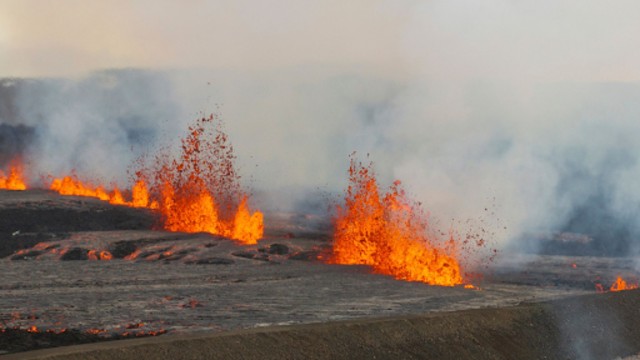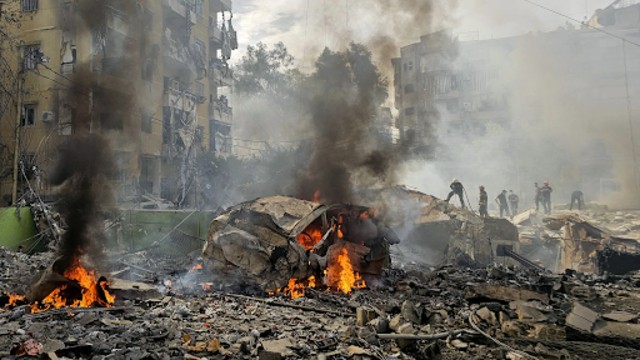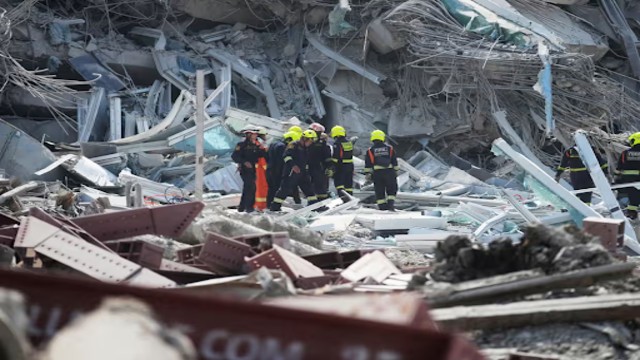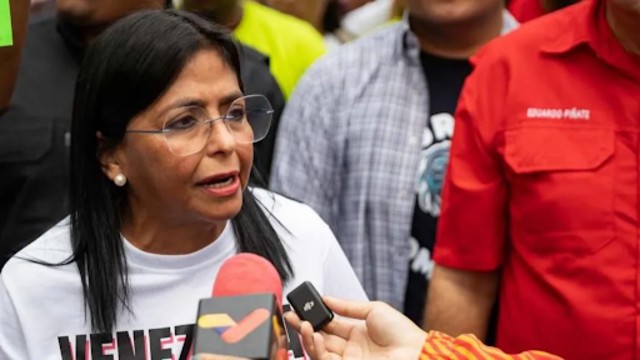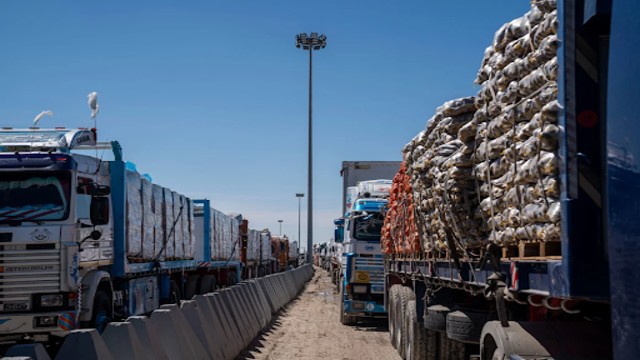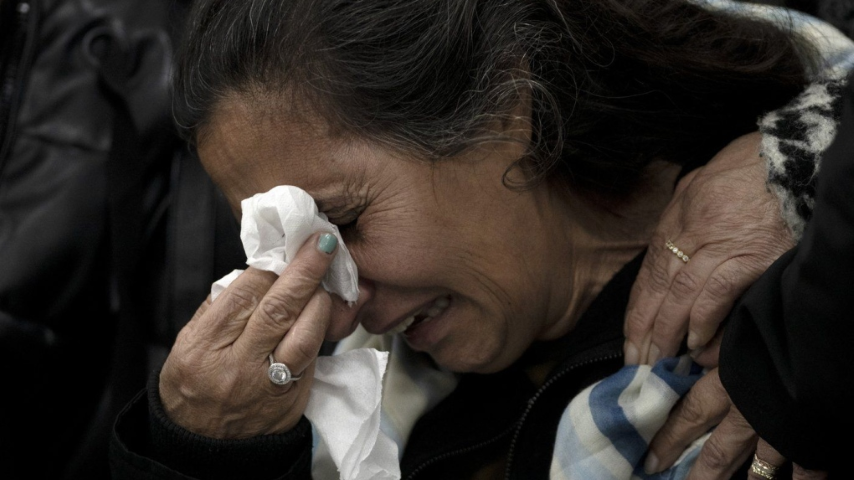
During the funeral of Matan Elmaliach, 26, in the West Bank settlement of Maale Adumim, a family member reacts emotionally, Thursday, Feb. 22, 2024. (Photo credit: AP/Maya Alleruzzo)
JERUSALEM — The conflict between Israel and Hamas has reached a critical juncture as Israeli airstrikes continue to devastate southern and central Gaza. Reports from the territory's health officials indicate that at least 71 people have lost their lives in the past 24 hours alone, adding to the already staggering toll of casualties.
In a separate but equally concerning development, tensions have spiked in the Israeli-occupied West Bank. Thursday morning saw a brazen attack near a checkpoint, where three gunmen opened fire on passing vehicles. Tragically, the assault claimed the life of one Israeli and left at least five others wounded. While two of the attackers were swiftly neutralized, a third was apprehended after a pursuit.
As violence grips both Gaza and the West Bank, European diplomats are intensifying their calls for a ceasefire, alarmed by the escalating humanitarian crisis unfolding in Gaza. The situation there has become increasingly dire, with a significant portion of the territory's 2.3 million inhabitants displaced from their homes. Most have sought refuge in areas like Rafah near the Egyptian border, where overcrowding and limited resources exacerbate their plight.
The toll of the conflict extends beyond mere numbers, with Gaza's Health Ministry estimating that more than 29,000 Palestinians have lost their lives since hostilities erupted. The roots of the current conflict trace back to Hamas-led militants' incursion into southern Israel on Oct. 7, triggering a devastating cycle of violence and retaliation.
Despite the grim reality on the ground, there are glimmers of hope for de-escalation. Yoav Gallant, Israel’s defense minister, hinted at a potential expansion of authority for hostage negotiators, a move viewed by some as a step toward dialogue. However, the specter of an Israeli offensive in Rafah looms large, casting a shadow of uncertainty over prospects for peace.
Meanwhile, international efforts to broker a ceasefire persist, with various stakeholders engaged in delicate negotiations. Yet, the path to a resolution remains fraught with challenges, as evidenced by the United States' recent veto of a UN resolution urging an immediate cessation of hostilities. The decision underscores the complex geopolitical dynamics at play and the divergent interests driving the conflict.
Amidst the chaos, voices of concern resonate from humanitarian organizations like Doctors Without Borders. Christopher Lockyear, the organization's secretary-general, decried the blatant disregard for civilian lives and the collective punishment inflicted on Palestinians. He called for urgent action to address the deteriorating humanitarian situation, emphasizing the need for immediate ceasefire and humanitarian assistance.
As the violence shows no signs of abating, the region teeters on the brink of further instability. The stakes are high, with each passing day bringing fresh tragedies and heightened tensions. The international community faces a pressing challenge: to act decisively in pursuit of peace and alleviate the suffering of those caught in the crossfire.




